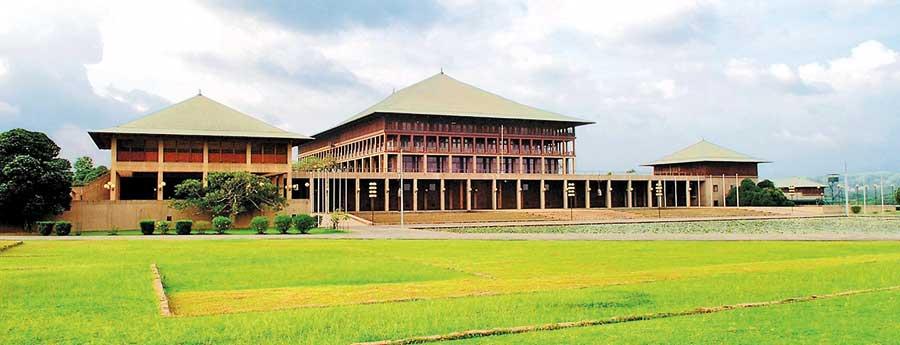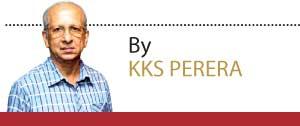Reply To:
Name - Reply Comment

‘Lawyers for Democracy’ issuing a statement called upon the BASL to express the views of the Bar on the 20thAmendment, where it proposes the arrogation of the power of appointment of judges to the Superior Courts by  the President and the bringing the Judicial Service Commission (JSC) directly under the control of the President by changing the composition of the JSC is a serious step towards the control of the judiciary. Convener of the ‘L for D’, wrote: “The disinterest shown by the BASL when the whole country is involved in a serious discussion on the attack on the independence of the judiciary and in fact on democracy itself is most surprising,” prompted the Bar Association which maintained stoic silence when H. W. Jayewardene QC, a former President of it conferred unregulated control of judicial appointments through 1978 Draft in his brother’s hands, to appoint a 15-member committee comprising senior members to study 20A Bill.
the President and the bringing the Judicial Service Commission (JSC) directly under the control of the President by changing the composition of the JSC is a serious step towards the control of the judiciary. Convener of the ‘L for D’, wrote: “The disinterest shown by the BASL when the whole country is involved in a serious discussion on the attack on the independence of the judiciary and in fact on democracy itself is most surprising,” prompted the Bar Association which maintained stoic silence when H. W. Jayewardene QC, a former President of it conferred unregulated control of judicial appointments through 1978 Draft in his brother’s hands, to appoint a 15-member committee comprising senior members to study 20A Bill.
Lawyers have always been in the vanguard to protect the rights of the public and freedom of judiciary despite political burden; the voiceless powerless people expect a lot from them. The BASL is not just a trade union of attorneys-at-law but it is a body of professional lawyers that is vested with the specialized mission of protecting the rights of the legal profession and more importantly the self-esteem and dignity of the profession and judicial independence.
The management committee of BASL wanted proposals submitted on, the clauses, Auditor General, Secy. Gen of Parliament should be appointed by President, subject to approval of Parliamentary Council; that President as repository of executive power should not be required to act on advice of Prime Minister; that President’s power to dissolve Parliament after a lapse of one year should be limited to several circumstances only. Amendment to the Constitution, and further amendments essential to the Constitution, to enable addressing laws, delays, and other related difficulties affecting the administration of justice, among them.
"Strangely, BASL trusts Parliamentarians, than intellectual civil representatives! "
Among the proposals submitted… under Clause 5 of the Bill: Immunity of the President, it says, “Bill deletes Article 35 of the Constitution and introduces in its place a new Article 35. The Committee is of the view that no person should be above the law. The President in particular being the repository of substantial powers under the Constitution should be held accountable for the exercise of those powers in accordance with the Constitution. No person is above the law and to grant absolute immunity from suit is contrary to all known principles of the rule of law. If the public do not have access to remedy a grievance against the unlawful exercise of powers by an all-powerful President, the only remedy will be to take arms against the State.”
What does it implicate?The hypothetical statement is somewhat ambiguous;perhaps not written in a professional tone and also lacks a definite conclusion: uses the term ‘only’, which implies there are no other remedies than people to take arms?Is it a deterrent to government or an attempt to rally the masses to their cause or both; surely it is not a very inspiring proposal. The BASL, a recognized body established as per the Charter of Justice 1802, in 1974 with the amalgamation of the Advocates and Proctors Associations under the Administration of Justice Law No. 44 of 1973,must clarify why it made such a radical recommendation of ‘taking arms’. A clarification would help defuse any misapprehension or confusion on the part of the general reader for they deserve a better understanding of the proposals.
Analyzing the causes and design of taking arms against governments by the JVP and the LTTE, it is obvious that the origin and development of the two radical organisations relate more closely to the lack of economic development since the beginning of the post-independence period. Both groups were dominated by young men coming from poor and lower middle class socio-economic background, with no assurance of a future, and not against constitutional provisions.
Declaration of Causes and necessity of taking up arms - America
On July 6, 1775, a resolution called ‘The Declaration of the Causes and Necessity of Taking Up Arms’, was adopted by the Second Continental Congress, explaining why the 13 Colonies had taken up arms in what had become the American War, written by Thomas Jefferson, the third President, states, “… for shielding of the freedom a birthright which they enjoyed until the violation of it.”
Abraham Lincoln taking the oath for his first term on March 4, 1861, as the 16th President of US, said,
“… This country, with its institutions, belongs to the people who inhabit it. Whenever they shall grow weary of the existing Government, they can exercise their constitutional right of amending it, or their revolutionary right to dismember or overthrow it.”
And on another occasion Lincoln stated… “We, the people are the rightful masters of both Congress and the courts, not to overthrow the Constitution but to overthrow the men who pervert the Constitution”
Coincidentally, it was John F. Kennedy, the 35th President of US who in 1961, exactly a century after Lincoln’s claim made a statement affirming his predecessor’s words,“Those who make peaceful revolution impossible will make violent revolution inevitable.”
“No freeman shall be debarred the use of arms,” from third American President Thomas Jefferson’s draft of the Virginia Constitution.
Are these proclamations, decrees and assertions made six to thirty decades ago have any validity in the current political frame-works and context? There are more rational substitutes to ‘take arms’
BASL on Clause 6
On the composition of the Parliamentary Council proposed by Clause 6 of the Bill, BASL says, “… the Bill is more conducive to the rule of law than the composition of the Constitutional Council contained in Article 41A of the Constitution. The inclusion in the Constitutional Council of persons who are not elected by the people is contrary to the sovereignty of the people and not conducive to the rule of law.”
Strangely, the Bar Association seems to have more trust and confidence in Parliamentarians, than intellectual civil representatives!
Political aspirations are likely to change, therefore the constitution should have a degree of flexibility, Jawaharlal Nehru once said, “If you make it rigid, you stop the growth of the nation. When the world is in turmoil and we are passing through a very swift period of transition, what we may do today may not be wholly applicable tomorrow”
Progress is difficult without change; we must have the nerve to find our own errors and then start remedying them. For a new constitution, yes, but, “who may decide, when, what, and how?” So, it is obvious that changes are necessary, but the question is by who? Certainly not by politicians!
Writer can be contacted at- [email protected]